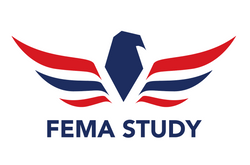IS-820: Introduction to NRF Support Annexes
This study guide includes all correct answers for IS-820: Introduction to NRF Support Annexes
Course Overview
The National Response Framework (NRF) presents the guiding principles that enable all response partners to prepare for and provide a unified national response to disasters and emergencies from the smallest incident to the largest catastrophe.
As part of the NRF, Support Annexes describe how Federal departments and agencies, the private sector, volunteer organizations, and nongovernmental organizations (NGOs) coordinate and execute the common support processes and administrative tasks required during an incident. The actions described in the Support Annexes are not limited to particular types of events, but are overarching in nature and applicable to nearly every type of incident.
Course Objectives:
- Describe the purpose of the NRF Support Annexes.
- Identify the roles and responsibilities of response partners for supporting incident management.
- Describe the coordinating procedures and mechanisms set forth in each NRF Support Annex.
Primary Audience
This course is intended for government executives, private-sector and nongovernmental organization (NGO) leaders, and emergency management practitioners. This includes senior elected and appointed leaders, such as Federal department or agency heads, State Governors, mayors, tribal leaders, and city or county officials those who have a responsibility to provide for effective response.
Prerequisites
IS 800, National Response Framework, An Introduction (note: IS 800, IS 800.a or IS 800.B are acceptable).
CEUs:
0.1
For more information regarding this course please visit https://training.fema.gov/is/courseoverview.aspx?code=IS-820







